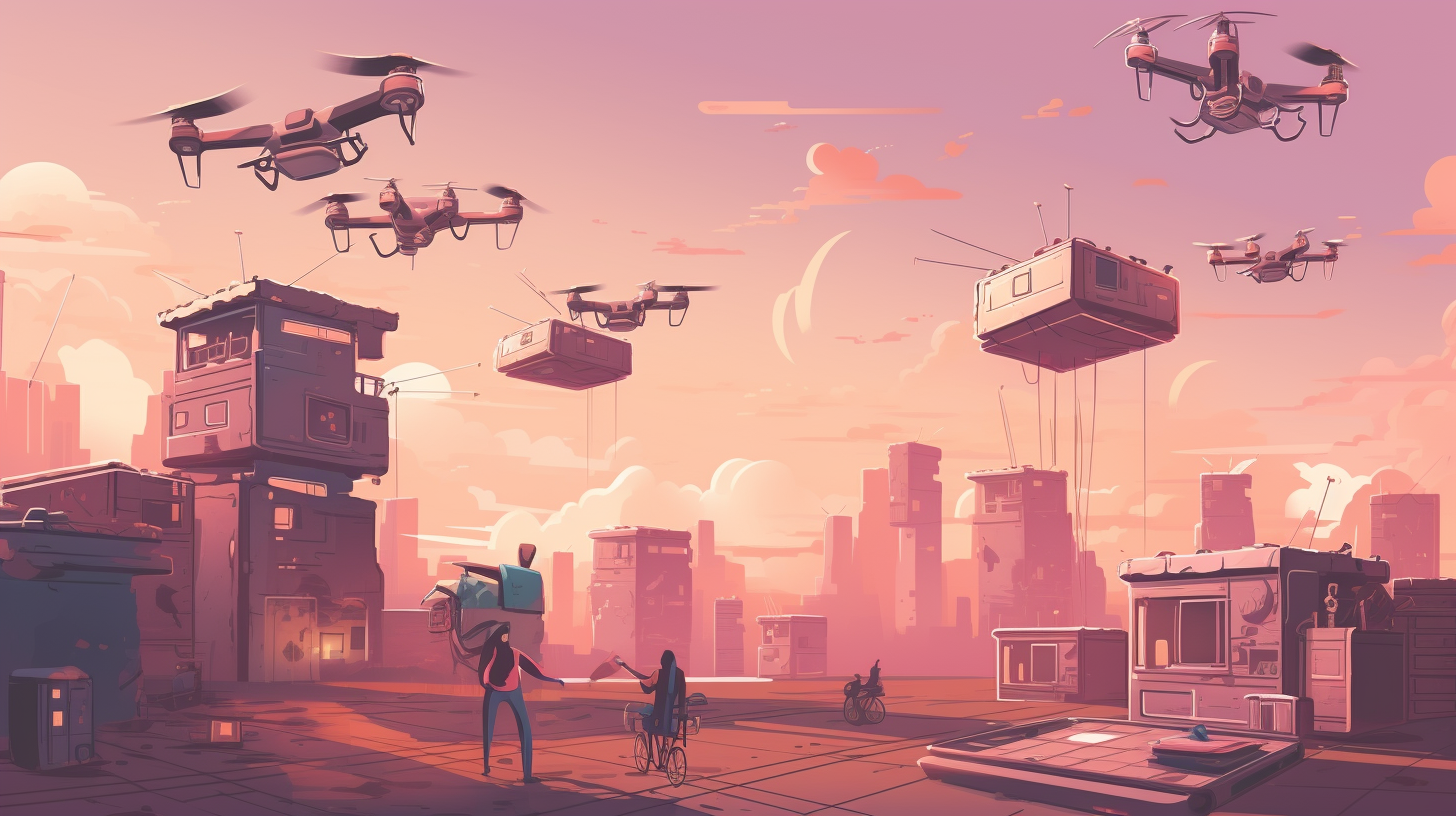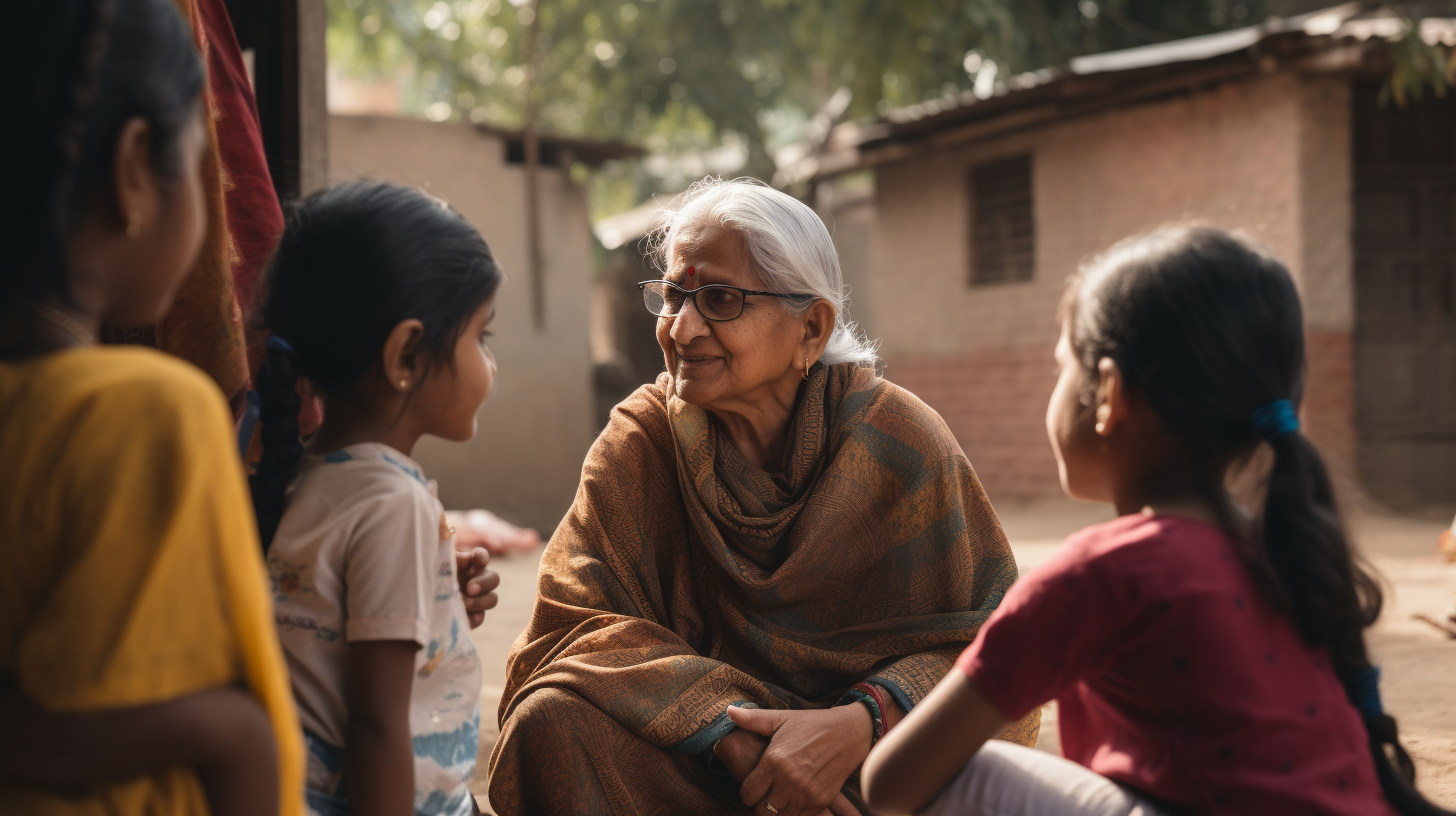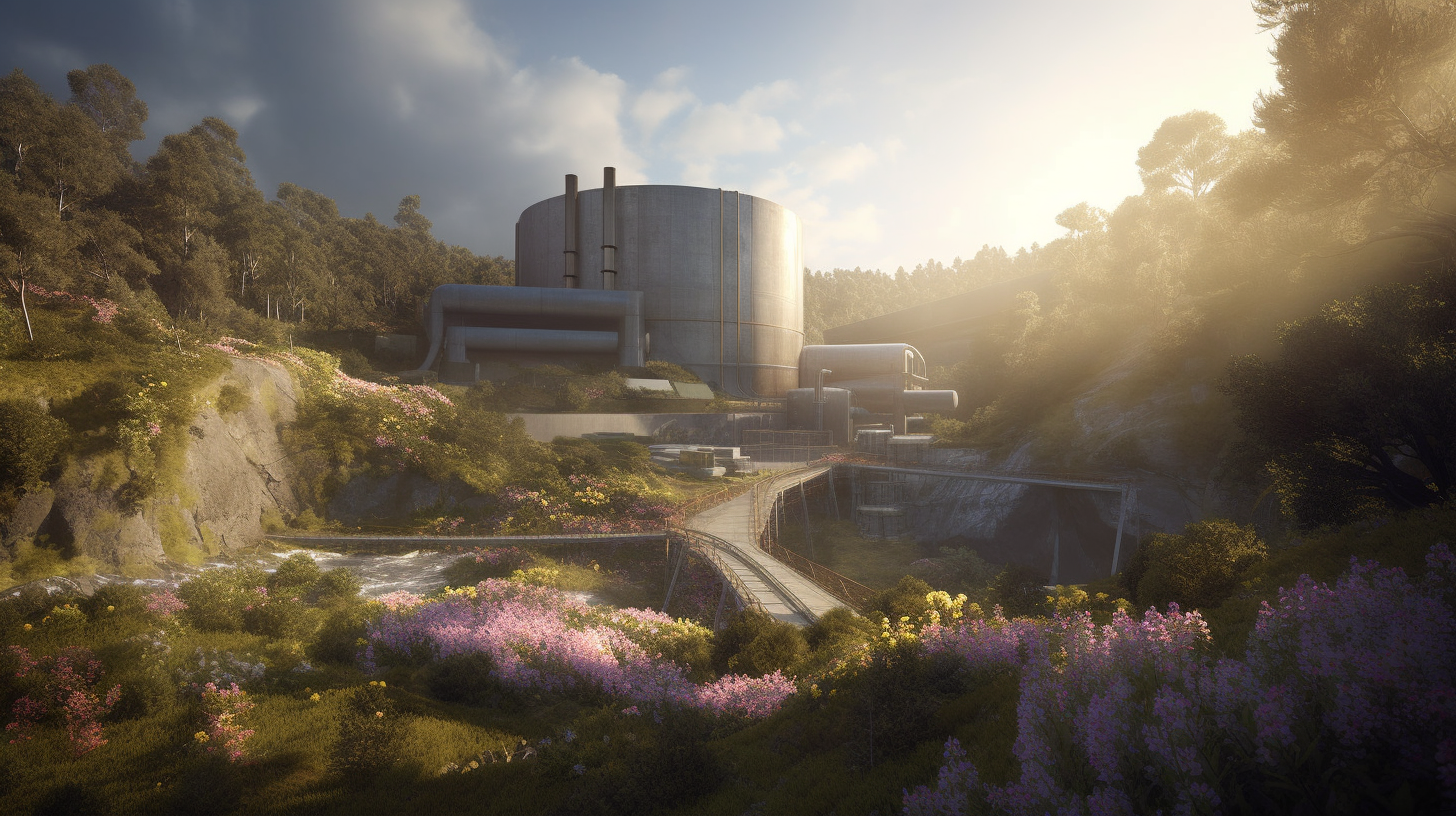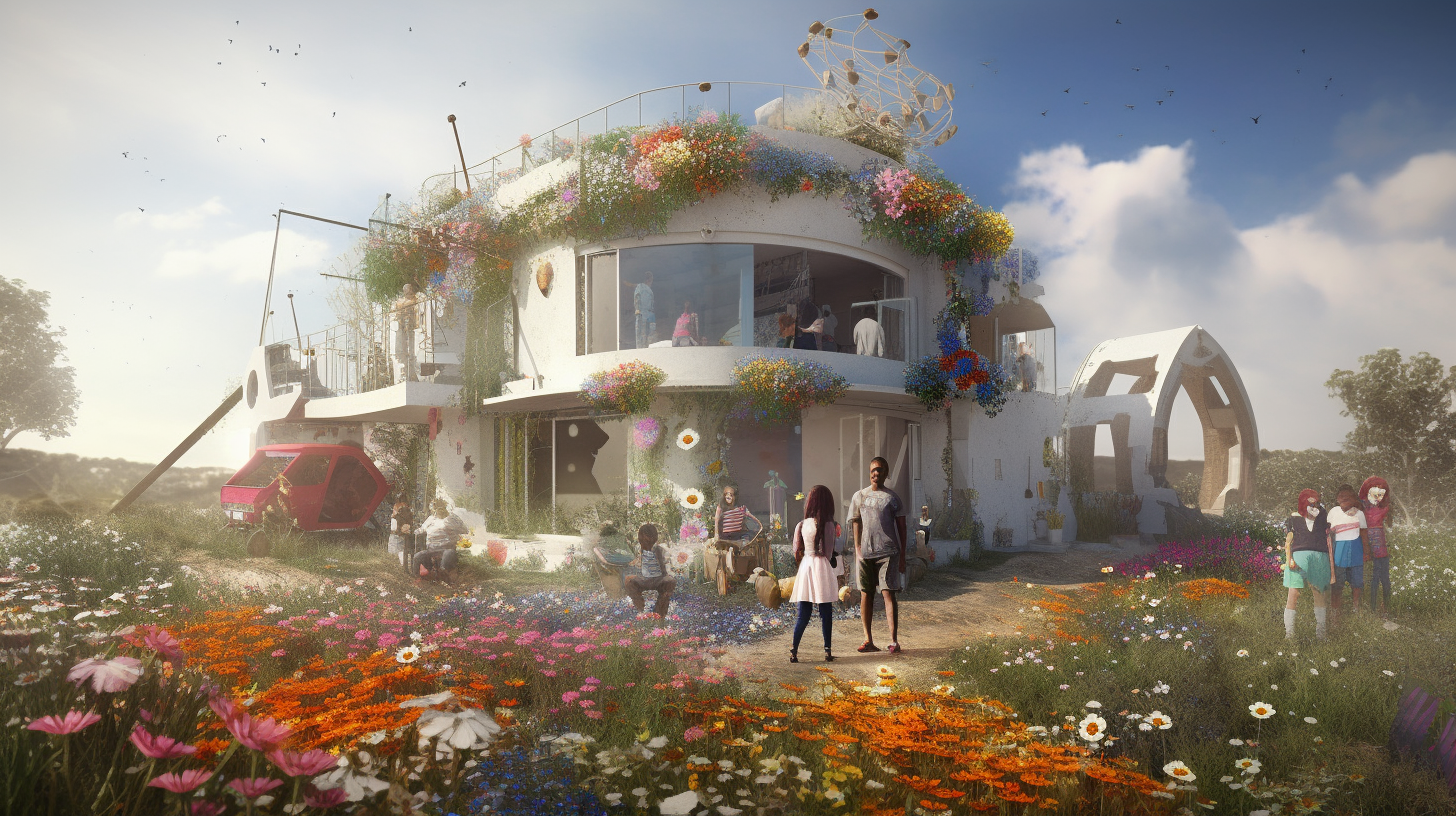Utopian Visions and Genetic Behaviours

Picturing a World of Shared Resources and Social Change
Welcome to my vision of the future, where I invite you to fast forward 1,000 years and imagine a world transformed. Inspired by the profound insights found within books like "Utopia for Realists," "The Selfish Gene," "Humankind," and "Homo Deus," I have been encouraged to look beyond my own lifetime and contemplate the possibilities that lie ahead.
As I peer into the distant future, I am acutely aware of the importance of addressing the challenges and opportunities that exist in our present reality. Before we venture into the boundless expanse of space and potentially encounter alien civilizations, I believe it is crucial that we "make our own bed" right here on Earth. With this in mind, I have begun to explore the idea of offering most services, which are currently provided by separate entities, for free as part of a taxation scheme.
Imagine a world where essential services such as electricity, gas, transportation, and even housing are readily accessible to all, without the burdensome weight of financial strain. This is a world where the fruits of technological advancements have paved the way for sustainable and efficient systems. I understand that the concept of free services may seem radical and distant, but I firmly believe it is a vision worth considering as we shape the future.
Throughout my journey, I have come to recognise that realising such a world will not be an overnight feat. It will require generations of dedication and collaboration. We must shift our mentalities, transcending the confines of power and greed, and embrace the idea of shared resources and collaborative governance. By exploring these transformative themes, I am delving into a future that holds the potential to uplift not only the privileged but also those in third-world countries, providing them with the very essentials we often take for granted.
So, I invite you to join me in this visionary exploration. Together, let us contemplate the challenges that lie ahead, examine the role of technology, envision the construction of sustainable infrastructure, delve into the realm of financial considerations, and discuss the imperative for social change. By embarking on this journey, I hope to paint a vivid picture of a future world where free services are not just a distant dream but a tangible reality that enhances lives and fosters a more equitable society.
Shifting Mentalities: Embracing Shared Resources

In this future world of free services that I envision, one of the fundamental shifts we must undergo is a transformation of our mentalities. It requires me to break free from the shackles of consumerism and embrace a paradigm centred around shared resources and access-based models. This shift aligns closely with the ideas presented in Rutger Bregman's book, "Utopia for Realists," which has profoundly influenced my thinking and challenged conventional wisdom.
In our current society, there is a prevailing belief that material accumulation is the key to success and happiness. Possessions and ownership define our social status and self-worth. However, in the world of free services, I recognise the need to shift my focus from ownership to access. Instead of aspiring to own multiple cars, I can embrace the idea of having access to efficient and reliable transportation services whenever I need them. Rather than accumulating possessions that serve little purpose, I can appreciate the value of shared resources that fulfil my needs and desires.
By embracing access-based models, I can contribute to reducing waste, eliminating the production of unnecessary goods, and minimizing my impact on our planet's limited resources. I imagine a future where products are designed to be durable, repairable, and shared among many, promoting more sustainable and efficient use of resources.
This shift in mentality also has profound implications for our relationships with one another. Collaboration becomes the cornerstone of this new world. Instead of competing for scarce resources, I recognise the power of sharing and working together to uplift everyone in society. This resonates deeply with the core themes in "Humankind", affirming my belief that humans are fundamentally kind, cooperative, and willing to work together for the greater good.
However, I am aware that shifting mentalities will not be without challenges. Some individuals may resist the idea of letting go of traditional notions of ownership, fearing that it may disrupt their way of life or jeopardise their perceived status. Understanding the genetic behaviours that underlie such reactions, as explored in "The Selfish Gene" by Richard Dawkins, helps me navigate these challenges with empathy and compassion.
Ultimately, embracing shared resources and shifting our mentalities towards access-based models is a transformative step towards building a more equitable and sustainable future. It requires me to challenge deeply ingrained beliefs and redefine my measures of success. By doing so, I can unlock the potential for a world where free services are not only possible but also beneficial for the well-being of individuals, communities, and the planet as a whole.
In the next section, let us delve into the critical aspect of collaborative governance and how it plays a pivotal role in realizing the vision of free services for all.
Collaborative Governance: Building a Foundation for Change

As I envision a world where most services are provided for free, I recognise the crucial role of collaborative governance in bringing this vision to life. It is through a collective effort and a reimagining of our political and social systems that we can establish the framework necessary for the realization of free services for all.
In this future world, politicians, policymakers, and citizens alike must come together to shape a governance structure that prioritises the well-being of the entire society over individual interests. This collaborative approach aligns with the ideas presented in "Utopia for Realists", which emphasises the importance of a more compassionate and forward-thinking political agenda.
One of the key challenges lies in overcoming the barriers of power and greed that have often hindered progress and equitable distribution of resources. By transcending these barriers, we can establish governance systems that are built upon transparency, accountability, and the principle of serving the common good. It requires a paradigm shift where leaders and institutions prioritisse long-term sustainability and equitable access to essential services.
To achieve this, we must actively engage citizens in decision-making processes and provide platforms for their voices to be heard. This participatory approach ensures that the policies and services implemented reflect the diverse needs and aspirations of the population. In essence, it means shifting from a top-down hierarchical structure to a more inclusive and collaborative model of governance.
Furthermore, as we embark on this journey towards free services, we must also address the financial considerations associated with such a system. While providing services for free may seem economically challenging, it is essential to recognise the potential long-term benefits and savings. By investing in sustainable infrastructure, renewable energy sources, and efficient resource management, we can create a more cost-effective and resilient system.
In the book "Homo Deus," Yuval Noah Harari urges us to think beyond the limitations of our current reality and embrace a future where technology and social structures work hand in hand to enhance human well-being. It is through this integration of technology and governance that we can ensure the efficient delivery of free services and the equitable distribution of resources.
However, it is crucial to acknowledge that building a foundation for collaborative governance will not happen overnight. It requires patience, perseverance, and a genuine commitment to change. As I reflect on the insights from "Humankind", I am reminded that despite the presence of a few defectors who resist this transformative vision, the vast majority of people possess an innate inclination towards cooperation and collaboration.
The realisation of a world with free services as part of a collaborative governance model holds immense potential for shaping a more equitable and sustainable future. By fostering transparency, inclusivity, and collective decision-making, we can overcome the hurdles of power and greed that have plagued our societies. Together, let us work towards a future where the benefits of progress are shared by all, bridging the gap between the privileged and the marginalised, and uplifting humanity as a whole.
In the following sections, we will delve into the critical aspects of sustainable infrastructure, social change, and the impact on third-world countries, highlighting the transformative possibilities that lie ahead.
Building Sustainable Infrastructure: Paving the Way for a Greener Future

In my vision of a world where most services are offered for free, the development of sustainable infrastructure becomes a paramount consideration. It is through the implementation of innovative technologies and the adoption of eco-friendly practices that we can create a greener and more sustainable future.
As I reflect on the changes happening around us, I am particularly inspired by the rapid progress in the development of the electric vehicle (EV) charging network. Just recently, I decided to purchase an electric vehicle, and through this experience, I have witnessed firsthand the remarkable speed at which a reliable infrastructure can be established.
The expansion of EV charging stations is a tangible example of the transformative power of sustainable infrastructure. Governments, in collaboration with private sector partners, have been investing heavily in the deployment of charging infrastructure to support the growing number of electric vehicles on the road. This shift aligns with the principles of sustainable transportation, as discussed in "Utopia for Realists", and highlights our collective commitment to reducing carbon emissions and improving air quality.
The establishment of a robust EV charging network not only addresses the range anxiety often associated with electric vehicles but also fosters a sense of confidence and convenience for EV owners like myself. It is an encouraging sign that the vision of sustainable infrastructure is already taking shape and that we are moving towards a future where clean and efficient transportation is accessible to all.
However, sustainable infrastructure extends far beyond just EV charging. It encompasses a broader scope of renewable energy generation, smart grids, energy-efficient buildings, and integrated transportation systems. These developments are critical in creating a truly sustainable society, as outlined in "Homo Deus", where technology and infrastructure work harmoniously to enhance human well-being and minimise our impact on the environment.
While significant progress has been made, we must continue to push for the accelerated development of sustainable infrastructure. Governments, businesses, and individuals need to collaborate and invest in research, innovation, and implementation to further advance our sustainability goals. The challenges ahead are multifaceted, ranging from funding and policy considerations to technological advancements and public awareness. However, by drawing inspiration from the positive changes already taking place, such as the EV charging network, we can confidently move forward and build a greener future.
In the next section, we will explore the profound social changes that this vision of free services and sustainable infrastructure entails. From shifting cultural norms to empowering marginalised communities, we will delve into the transformative power of social change in building the future we aspire to see.
The Power of Social Change: Empowering Communities for a Better Future

In envisioning a world where most services are provided for free as part of a collaborative and sustainable framework, it becomes evident that profound social changes are necessary to support such a transformative vision. These changes involve shifting cultural norms, empowering marginalised communities, and fostering a sense of collective responsibility and empathy.
Throughout my own journey, I have come to appreciate the significant impact that personal experiences can have on shaping our perspectives and driving social change. As I mentioned earlier, my recent decision to purchase an electric vehicle not only increased my awareness of sustainable infrastructure but also sparked a deeper commitment to reducing my carbon footprint. This personal experience has reinforced my belief that individual actions, when multiplied across society, can create a powerful force for positive change.
Books like "Humankind" highlight the potential of human kindness and cooperation. They challenge the prevailing belief that humans are inherently selfish or competitive. Instead, they reveal our inherent capacity for compassion and collaboration. It is through embracing this collective mindset that we can build a society that uplifts all its members, leaving no one behind.
Empowering marginalised communities is a vital aspect of social change. Inequality and systemic barriers prevent equal access to resources and opportunities, perpetuating cycles of poverty and exclusion. By addressing these disparities head-on, we can create a more inclusive society where everyone has access to the services and support they need. This aligns with the core principles of "Utopia for Realists", which advocates for bold measures to eradicate poverty and foster social justice.
Education plays a pivotal role in driving social change. By equipping individuals with knowledge, critical thinking skills, and a broader perspective, we can empower them to actively participate in shaping their communities and advocating for positive change. Accessible education for all, as discussed in "Homo Deus" by Yuval Noah Harari, can be a catalyst for transforming societies and preparing future generations to address the challenges of an ever-evolving world.
Furthermore, social change requires us to challenge cultural norms and narratives that perpetuate inequality and unsustainable practices. It involves redefining success, moving away from a materialistic and consumption-driven mindset, and embracing values prioritising well-being, equality, and environmental stewardship. These cultural shifts, inspired by the ideas presented in the books mentioned earlier, lay the foundation for a more harmonious and sustainable future.
It is important to recognise that social change does not happen overnight. It requires perseverance, resilience, and a collective commitment to breaking down barriers and fostering a sense of unity and shared responsibility. By amplifying diverse voices, engaging in open dialogue, and supporting grassroots initiatives, we can accelerate the pace of change and ensure that the benefits of a world with free services and sustainable infrastructure reach everyone, especially those who have historically been marginalised.
In the final section, we will explore the transformative impact of this vision on third-world countries, the potential to lift communities out of poverty, and the importance of taking care of our planet before venturing into space and encountering potential alien civilizations.
Empowering Third World Countries: Bridging the Gap and Embracing Planetary Stewardship

As I contemplate the far-distant future, where most services are provided for free and sustainable infrastructure is the norm, I am compelled to consider the transformative impact on third-world countries. This vision holds immense potential for lifting communities out of poverty, bridging the socio-economic gap, and providing the necessities that many of us take for granted.
Currently, third-world countries face significant challenges in accessing basic services such as clean water, electricity, healthcare, and education. Extending the principles of free services and sustainable infrastructure to these regions has the power to empower individuals and communities, breaking the cycle of poverty and unlocking their full potential.
Books like "Utopia for Realists" have shed light on the importance of providing a universal basic income and eradicating poverty. They emphasise the transformative power of ensuring that every individual has their fundamental needs met, enabling them to thrive and contribute meaningfully to society. Inspired by this perspective, I believe we can work towards a future where no one is left behind, regardless of their geographic location or socio-economic background.
Implementing free services and sustainable infrastructure in third-world countries will require concerted efforts from governments, non-profit organizations, and international collaborations. By harnessing the advancements in technology and leveraging the expertise of developed nations, we can overcome the hurdles that hinder progress and create a more equitable world.
However, I acknowledge that realizing this vision will not be an easy task. It necessitates a collective commitment to collaboration, resource allocation, and knowledge sharing. We must address systemic challenges such as corruption, political instability, and lack of infrastructure that often hinder progress in these regions. Drawing inspiration from the concepts of resilience and cooperation explored in "Humankind", I am confident that we can forge a path towards inclusive development and a more prosperous future for all.
Before we venture into the vast expanse of space and potentially encounter alien civilizations, I believe it is crucial that we make our own bed. By this, I mean taking responsibility for the well-being of our planet and becoming stewards of the Earth. The exploration of space and the colonization of other planets should not be pursued as an escape from our current challenges but as an expansion of our collective knowledge and potential.
By prioritizing sustainability, conserving resources, and embracing a circular economy, we can ensure that our actions today do not compromise the possibilities of future generations. "Homo Deus" by Yuval Noah Harari reminds us of the importance of charting a course that balances technological progress with ethical considerations and a deep sense of interconnectedness with our environment.
In conclusion, the vision of a future where most services are offered for free as part of a taxation scheme, coupled with sustainable infrastructure, holds immense potential for a better world. It requires our collective effort, political will, and a fundamental shift in our values and cultural norms. By embracing social change, empowering marginalised communities, and recognizing the profound impact of personal experiences, we can build a society that uplifts all its members and safeguards our planet.

Let us embark on this transformative journey, inspired by the ideas presented in "Utopia for Realists," "The Selfish Gene," "Humankind," and "Homo Deus." Together, we can create a world where access to essential services is a fundamental right, where sustainable infrastructure is the backbone of our communities, and where the benefits of progress are shared equitably. Only then can we confidently explore the wonders of the universe, knowing that we have laid a solid foundation of compassion, collaboration, and planetary stewardship.
